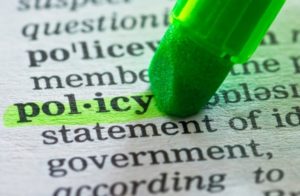One of the questions I get asked quite a lot is whether I think that a teacher should be friends with a student on Facebook. There is passionate debate for and against and both sides have very relevant arguments. One discussion I was involved in on LinkedIn received over 500 comments!
I am a big believer in connecting with students in places where they already are. One piece of research I saw on Edmodo (a site branded as the Facebook for education) was that after a year only 6% of students were still engaging on that site. It doesn’t make sense to me that we would drive students to a site when we could just meet them where they already are.
That being said, I am also very wary of anything that could jeopardise my reputation as a teacher. The reality is that you only need one allegation to be directed at you (proven or not) and your reputation can be in tatters.
I came across a newspaper article today talking about how a teacher resigned after writing on Facebook “I love dumb people…I call it job security,” The statement might seem benign, but the fact that she was a Special Ed teacher and teaching children with special needs didn’t help her cause!
Regardless of which side of the argument you sit there are 2 things you should do when it comes to having a school social media policy:
1. Design your own social media policy.
I think the days of your school social media policy being “we don’t have one” are over. Equally the days of just adopting the districts or states policy in its entirety are also limited (you don’t do that for your discipline policy, why would you do that with social media?) Each school should have their own policy specifically written.
This might seem like a big task, but in reality you don’t need to re-invent the wheel – just fit the wheel to your situation. The best place to start is by looking at your state or districts social media policy. Most have one written now and may just be buried on a website somewhere. I would also suggest you also take a look at this database of social media policies. It has a great mix of business, government and educational examples.
2. Understand how to use social media without compromising your professional integrity.
I have written some short guides about how to use Twitter and Facebook in the classrooms and have put the links below. You can use these links to inform your decision making about how teachers and students can interact and the safeguards that need to put in place to protect both the teachers and the students.
I’m interested. Do you have a school social media policy? Is it specific to your school or generally applied across a region?











